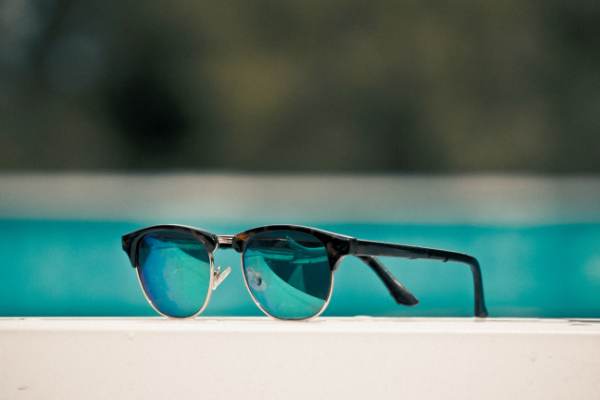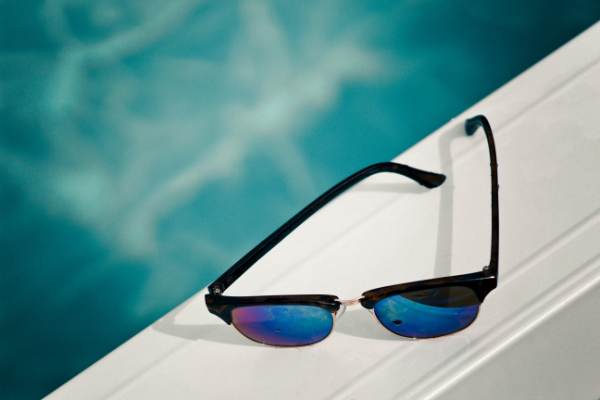While it’s important to enjoy the sun while outdoors, it’s also important to protect your eyes. Your health depends on having a good pair of sunglasses. Sunglasses with polarization do a good job of shielding the eyes from strong light and reducing glare, which improves visibility. But are they better for you? Read this article and learn more about polarized sunglasses.
What Are Polarized Sunglasses
You won’t get direct eye contact with light glare if you wear polarized lenses. Some of that light and glare is blocked as it passes through polarized lenses by coating them with a specific chemical. When something reflects into your eyes, polarized lenses act as a filter.
When you are sporting a pair of grey polarized sunglasses, things might appear a little darker than usual. The added protection for your eyes from the sun’s rays and glare is the trade-off and distinction between these sunglasses and regular ones.
On a cloudy day, brown polarized lenses are preferable to grey polarized lenses because they can increase contrast.
How Do Polarized Glasses Work
A unique chemical filter on polarized sunglasses prevents some light from passing through the lens. In essence, light is scattered by the lenses so that it doesn’t all reflect into the eye.
The horizontal angle at which sunlight has reflected the eye when it hits a flat surface strains the eye. Vertical light can pass through the lenses of polarized glasses while horizontal light is blocked by the coating. You can see clearer images as a result of the reduction of glare.

Benefits Of Polarized Sunglasses
Glare Reduction
The best-case scenario is that glare is annoying. In the worst case, it might be harmful.
According to studies, when the sun is at its glare-producing peak, accidents on the road—and intersection collisions in particular—happen more frequently.
Reduced glare allows you to be more aware of your surroundings, which may help you avoid accidents and injuries.
Improved Clarity
Glare can impair your ability to see clearly even when it poses no danger. Polarized sunglasses help people see more precisely, so athletes and outdoor enthusiasts frequently wear them.
You may also see colors more accurately with polarized sunglasses than with non-polarized ones.
Fatigue Prevention
According to research, fatigue can be brought on by sun glare. Glare makes your eyes work harder as they attempt to interpret the data they are taking in. Your eyes may feel worn out, sore, or unable to stay open as a result of this overwork, which is also known as eye strain.
Polarized Sunglasses VS. UV Protection
UV-protected lenses and polarized lenses are not interchangeable. Therefore, it’s crucial to keep in mind that polarized lenses don’t offer UV protection unless specifically stated on the label.
Additionally, UV protection alone does not make a pair of sunglasses effective at blocking reflected light and glare.
Your eyes are protected from damaging UV exposure, which has been linked to cataracts and other eye damage, by UV-protected lenses. Photokeratitis, or temporary blindness, can result from even brief exposure to strong UV rays. When you’re outside, it’s critical to wear sunglasses that offer 99 or 100% UV protection.
You should seek out sunglasses that are polarized and provide UV protection because UV lenses do not, however, prevent glare.
Many polarized sunglasses on the market come with a UV protection coating, according to the American Academy of Ophthalmology. The next time you go sunglass shopping, make sure to read the tags on the sunglasses.
How To Tell A Pair Of Polarized Sunglasses
To determine if your sunglasses are polarized, follow these simple steps. Try using the lenses and not wearing them to observe a reflective surface.
It should be simpler to see clearly in bright light thanks to polarized lenses’ ability to reduce glare from bright light reflecting off reflective surfaces and slightly increase contrast.
Examining an LCD screen is a different way to check for polarized lenses. When compared to regular tinted lenses, polarization can frequently make it harder to see screens. LCD screens appear black or extremely dark through polarized lenses.
Who Are Polarized Sunglasses For
For anyone spending time outside, especially in bright light, polarized lenses are recommended. These activities are where these lenses are most useful:
- When driving in the daytime: On a clear day, sunlight reflecting off of the windshield causes the light to disperse into a bright, distracting glare. This glare is blocked by polarized lenses, allowing you to concentrate on the road and drive safely.
- Fishing: When fishing, polarized sunglasses help you see beneath the water’s surface.
- Boating: Polarization can lessen the eye strain that comes from light reflection on the water, which will help you see more clearly when you’re boating.
- Golfing: Golfers frequently report that wearing polarized sunglasses improves their game by reducing fairway glare.
- Athletic activities: Polarized glasses are an option for athletes who want to see clearly and stay safe.
Are Polarized Sunglasses Your Best Choice
Your needs will determine whether polarized sunglasses are the best option for you if that is a question you have.
Sunglasses with polarization serve a specialized purpose and are designed for people who spend a lot of time outside and want to lessen glare and bright reflection. If you frequently find yourself in bright environments and need proper eye protection, polarized sunglasses are a great choice.
You cannot avoid looking directly at the sun by wearing polarized lenses. It is always advisable to take precautions to shield your eyes from damaging UV light.
Some suggestions to keep in mind when looking for polarized sunglasses:
- Look for sunglasses that specifically state they offer UV protection if polarized lenses and UV protection are important to you.
- Avoid wearing glasses that are too small and don’t completely cover your eyes.
- Choose sunglasses with a scratch-resistant lens coating if your sunglasses experience a lot of wear and tear.
Your needs determine which sunglasses are best for you. One excellent first step is to speak with your optometrist to determine the best fit.
Alternatives To Polarized Sunglasses
Polarized eyewear may be uncomfortable for some people, or they may not be permitted to wear them at work. There are other options if you can’t wear polarized lenses for whatever reason:
- Both reading glasses and sunglasses can have an anti-reflective coating.
- Reduced light entering your eyes is made possible by mirrored sunglasses.
- When exposed to a certain amount of light, photochromic lenses automatically become darker.

